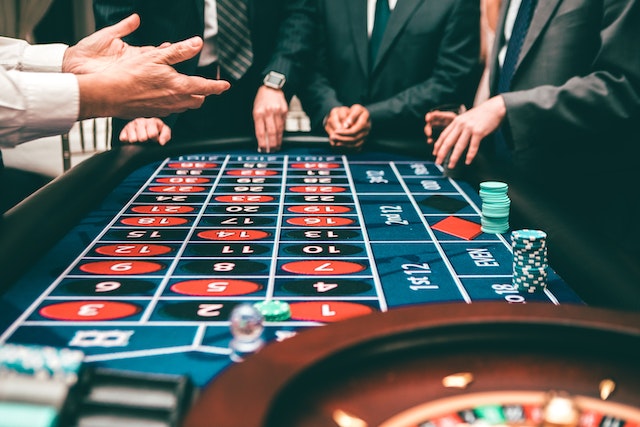
Why does the house always win in a casino? The house always wins because of the odds they give, the way casinos are set up, and because of psychology.
Why is a casino called the house? It’s because the word “casino” comes from the Latin, through Italian, word “casa”, which means “house”. “Casino” means “small house”. Gambling tended to take place in small houses, hence the name. There was also dancing and music in these small houses. The church stepped in and gambling was made illegal. You can’t suppress something like gambling, though, casinos began to spread across Europe. They became more popular and the British are credited with taking the idea of casinos to their colonies. Gambling took hold in America, but the first casino wasn’t opened until the early 1800s. So, a casino is called “the house” because the word literally means “small house”.
So, why does the house always win? The main reason is because of something called the house edge. Let’s make something clear though, the house always wins doesn’t mean that you cannot win games in a casino. You obviously can. People win a lot of money in casinos. However, people also lose a lot of money in casinos. The casinos are set up so that they make small profits off each of their games, all the time, and over a long period of time the house will make a profit. If this wasn’t true and the house didn’t always win, there wouldn’t be any casinos.
Let’s look at roulette. European and American roulette wheels are slightly different, so let’s look at the American one. There are 38 numbers and you can bet on:0, 00, and 1 to 36. However, if your number comes up, you are only paid 35:1. That means if you put $1 down, you get $35 back. If you put a dollar on every number, you spend $38 but you get $35 back. Betting on red or black appears to pay out 1:1, and it does, but you have to take the 0 and 00 into account. They are green, so the table won’t land on red or black 50% of the time. Now, someone might bet $100 on number 5, win $3500 and walk away. They might wonder how the casino can make money if they just won that much. The casino makes money because the house edge for roulette is 5.26%. One person might walk away with $3500, but for every $100 played on that table, the house will keep $5.26. That doesn’t sound like a lot, but the tables run 24 hours a day, 365 days a year. The MGM Grand, a famous Las Vegas casino, made $6.475 billion in 2022. The house edge for all of the games a different, but the house has an edge on every game. If they didn’t, they wouldn’t let people play it.
Each game makes a small amount of money, so the casinos need people to play for as long as possible. They don’t want someone to win and walk away. If someone plays roulette for four hours and plays $250 an hour, they may win some and lose some, but at the end of four hours, they will have lost an average of 5.26%, which is about $50. If they play for 8 hours, they will have lost $100, and so on. To make people play for as long as possible, casinos give out free drinks and free food. They don’t want people leaving the casino to eat and a drunk player loses more than a sober player. They have shows to keep people in the casino. They have no windows or clocks, so players can’t tell the passage of time. They keep the air temperature slightly low to keep people from getting sleepy and wanting to give up. The longer you are in the casino, the more the house edge will work against you.
Our own personal psychology works against us in casinos to help the house win. The first thing they do is change our money to chips or digital credits. It is much easier to bet and to bet more when you don’t think you are playing with real money. Think about buying something with a credit card or buying it with cash. The same works in a casino. We also have the gambler’s fallacy to contend with. We attribute meaning to random chance. There is also a psychological trait called “loss aversion”. People who are winning feel that they can win more, but they are more likely to stop than someone who is losing. If we start to lose money, we feel driven to recover the money we have lost and to not walk away while we are down. The longer a casino can keep people gambling, the more money they will win. Never forget the law of large numbers. Millions of people go to casinos. If one person wins big, another person loses big, but everybody loses a little bit all the time to the house. And this is what I learned today.
Sources
https://www.prairiestategaming.com/blog/history-of-casino-gaming
https://www.encyclopedia.com/reference/social-sciences-magazines/gambling-united-states-overview
https://www.lasvegasadvisor.com/question/first-casino-and-meaning-of-the-word/
https://en.wikipedia.org/wiki/Casino
https://www.vocabulary.com/dictionary/casino
https://edge.twinspires.com/casino-news/what-is-the-house-edge-in-roulette-and-why-is-it-important/
https://wizardofodds.com/games/roulette/basics/
https://www.casino.org/roulette/odds/
https://www.gatewayfoundation.org/addiction-blog/casino-psychology/
